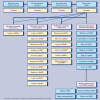Do ultra-short screening instruments accurately detect depression in primary care? A pooled analysis and meta-analysis of 22 studies
- PMID: 17263931
- PMCID: PMC2034175
Do ultra-short screening instruments accurately detect depression in primary care? A pooled analysis and meta-analysis of 22 studies
Abstract
Background: Guidance from the National Institute for Health and Clinical Excellence recommends one or two questions as a possible screening method for depression. Ultra-short (one-, two-, three- or four-item) tests have appeal due to their simple administration but their accuracy has not been established.
Aim: To determine whether ultra-short screening instruments accurately detect depression in primary care.
Design of study: Pooled analysis and meta analysis.
Method: A literature search revealed 75 possible studies and from these, 22 STARD-compliant studies (Standards for Reporting of Diagnostic Accuracy) involving ultra-short tests were entered in the analysis.
Results: Meta-analysis revealed a performance accuracy better than chance (P<0.001). More usefully for clinicians, pooled analysis of single-question tests revealed an overall sensitivity of 32.0% and specificity of 97.0% (positive predictive value [PPV] was 55.6% and negative predictive value [NPV] was 92.3%). For two- and three-item tests, overall sensitivity on pooled analysis was 73.7% and specificity was 74.7% with a PPV of only 38.3% but a pooled NPV of 93.0%. The Youden index for single-item and multiple item tests was 0.289 and 0.47 respectively, suggesting superiority of multiple item tests. Re-analysis examining only 'either or' strategies improved the 'rule in' ability of two- and three-question tests (sensitivity 79.4% and NPV 94.7%) but at the expense of being able to rule out a possible diagnosis if the result was negative.
Conclusion: A one-question test identifies only three out of every 10 patients with depression in primary care, thus unacceptable if relied on alone. Ultra-short two- or three-question tests perform better, identifying eight out of 10 cases. This is at the expense of a high false-positive rate (only four out of 10 cases with a positive score are actually depressed). Ultra-short tests appear to be, at best, a method for ruling out a diagnosis and should only be used when there are sufficient resources for second-stage assessment of those who screen positive.
Figures
Comment in
-
Short screening tools for depression.Br J Gen Pract. 2007 May;57(538):412-3. Br J Gen Pract. 2007. PMID: 17504599 Free PMC article. No abstract available.
-
Review: Ultra-short screening tests are not highly accurate for detecting depression in primary care.Evid Based Med. 2007 Aug;12(4):120. doi: 10.1136/ebm.12.4.120. Evid Based Med. 2007. PMID: 17885168 No abstract available.
-
Review: ultra-short screening tests are not highly accurate for detecting depression in primary care.Evid Based Nurs. 2007 Oct;10(4):118. doi: 10.1136/ebn.10.4.118. Evid Based Nurs. 2007. PMID: 17905770 No abstract available.
-
Review: diagnosing depression in primary care--ultra-short screening instruments may have limited use.Evid Based Ment Health. 2007 Nov;10(4):107. doi: 10.1136/ebmh.10.4.107. Evid Based Ment Health. 2007. PMID: 17962651 No abstract available.
References
-
- Katon W, Schulberg HC. Epidemiology of depression in primary care. Gen Hosp Psychiatry. 1992;14(4):237–247. - PubMed
-
- Shah A. The burden of psychiatric disorder in primary care. Int Rev Psychiatry. 1992;4:243–250.
-
- Wittchen H-U, Pittrow D. Prevalence, recognition and management of depression in primary care in Germany: the Depression 2000 study. Hum Psychopharmacol Clin Exp. 2002;17:S1–S11. - PubMed
-
- Herrman H, Patrick DL, Diehr P, et al. Longitudinal investigation of depression outcomes in primary care in six countries: the LIDO Study. Functional status, health service use and treatment of people with depressive symptoms. Psychol Med. 2002;32(5):889–902. - PubMed
-
- Croudace T, Evans J, Harrison G, et al. Impact of the ICD-10 Primary Health Care (PHC) diagnostic and management guidelines for mental disorders on detection and outcome in primary care. Cluster randomised controlled trial. Br J Psychiatry. 2003;182:20–30. - PubMed
Publication types
MeSH terms
LinkOut - more resources
Full Text Sources
Research Materials



